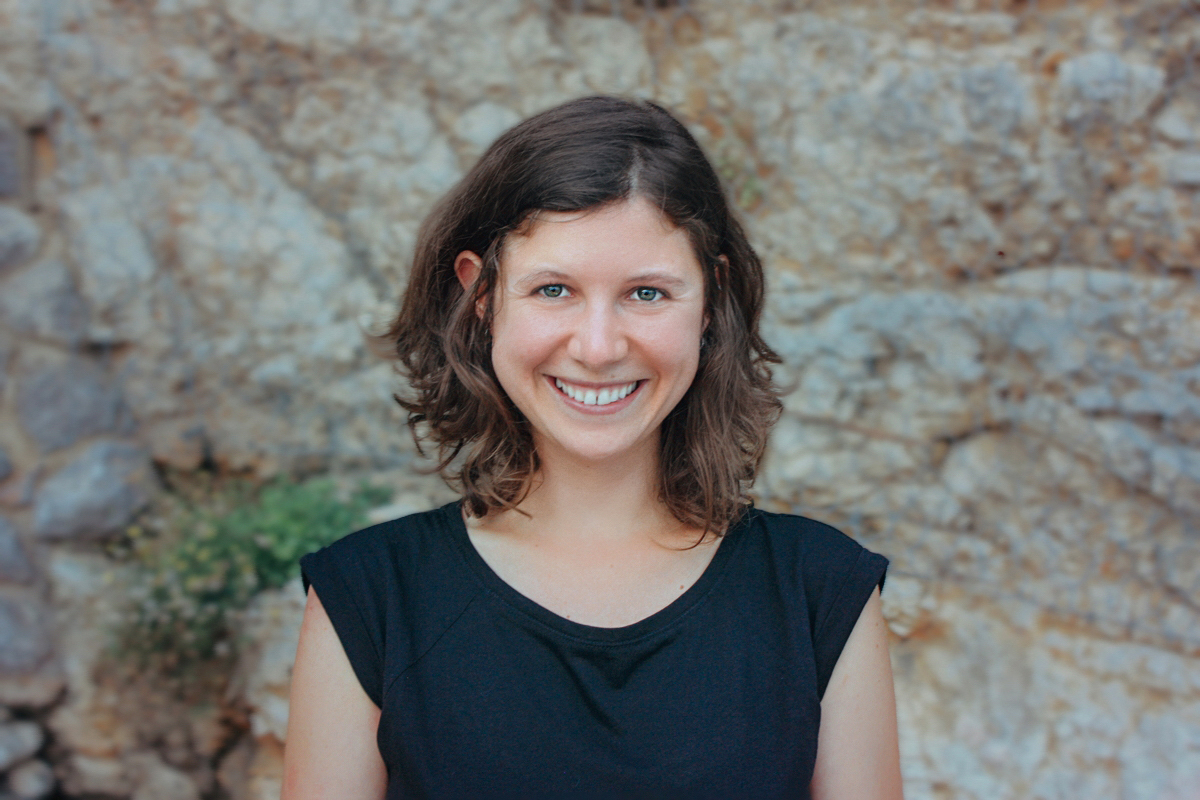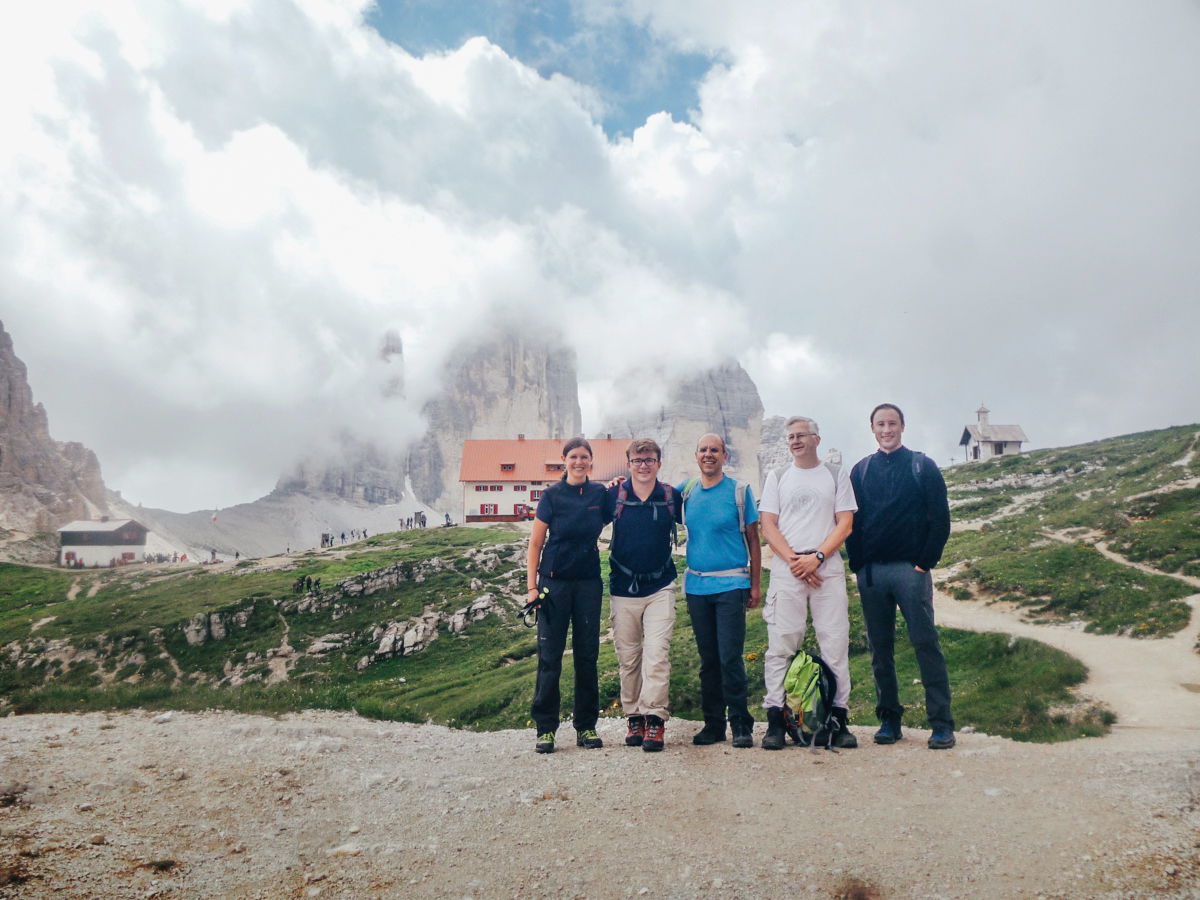
Katja Kalkschmied
Vienna School of International Studies
katja.kalkschmied@da-vienna.ac.at

Katja Kalkschmied
Vienna School of International Studies, Austria
katja.kalkschmied@da-vienna.ac.at
Welcome
I am a postdoctoral fellow at the Department of International Economics within the Vienna School of International Studies, also known as Diplomatische Akademie Wien (Austria). Prior to this, I held a similar position at the Chair of International Economics within the Faculty of Management and Economics at Ruhr University Bochum (Germany).
The central theme of my research is the structuring role and joint workings of institutions and their relevance for economic development. I conduct empirical and theoretical work to understand how institutions build systems of incentives and constraints for economic activities. I put emphasis on the conditions under which institutions evolve and become effective. Within my work on institution building, I study the role of China as development financier and challenger of the Western-led global order with a special focus on the presence of China in countries of the Global South and at the European periphery.
My fields of work and interests are development economics and growth, institutional economics, international political economy, development finance, and international trade. I work at the intersection of economics and political science and publish in outlets of both fields. My articles are published in peer reviewed journals but also as book chapters, within special issues and collections.
I am the project leader of Development Finance in the Face of Climate Change that is financed by the Austrian National Bank’s Anniversery Fund and joint work with Alexander Marbler from the Wegener Center for Climate and Global Change at the University of Graz. The project takes place from March 2025 to February 2028.
On this homepage, you find information about my research, my teaching, and about me. My CV is here. For any further information, please feel welcome to contact me at katja.kalkschmied@da-vienna.ac.at.
Research
Research Agenda
I study institution building and institutional change and their consequences for economic development. I use theoretical and empirical tools to understand the coevolution of institutions, economic outcomes, and environmental factors.
I am interested in the synchronic and diachronic problems that the field of Comparative Institutional Analysis is dedicated to. As put by Masahiko Aoki (2001):2-3, the former aims to understand “the complexity and diversity of overall institutional arrangements across the economies as an instance of multiple equilibria of some kind” while the latter aims to understand “the mechanism of institutional evolution/change in a framework consistent with an equilibrium view of institutions, but allowing for the possibility of the emergence of novelty.
I take the standpoint that institutions are created in strategic interactions and need to be (re)produced in everyday action choices. I use macro game theory and strategic complementarities to study which institutions are implemented in which environment and when institutions change or not. I reconcile the institutions as rules and the institutions as equilibrium outcome approaches in a similar manner as Hindriks and Guala (2015) who propose a rules-in-equilibrium stance of institutions. In the reconciled approach, rules need to be supported in strategic action choices and marterialize in societal artefacts (organizations, money, treaties, market places). A critical mass of individuals needs to align beliefs to build an institution and undertake a coordinated change in beliefs to replace an institution. The state and powerful private players exert influence to manage beliefs and establish some specific among a set of alternative feasible institutions and societal artefacts that meet their interests. This approach provides a micro foundation for the macroeconomic phenomena I am keen to understand. I use econometrics to estimate the conditional effects of institutions and policies. I conduct case studies to understand the conditions under which institutions are built and changed in specific environments, putting emphasis on path dependency and the role of powerful actors and ideas.
My research can capture the diversity of institutional set-ups across time and space. It contributes to understanding missing, unsustainable, and unequal growth and finding ways out of institutional uncertainties and suboptimal equilibria. This includes understanding how we can direct institution building and institutional change in an era of globalized capitalism, geopolitical and geoeconomic shifts, climate change, and digitalization to ensure that the outcomes fit societal goals.
Journal Publications
“Rebundling Institutions: How property rights and contracting institutions combine for growth” published in Journal of Comparative Economics, 51.2 (2023), pp.477-500.
“China’s infrastructure investment in the South Caucasus before and after Russia’s invasion of Ukraine” published in Caucasus Analytical Digest, 132 (2023), pp.7-13
“Corruption in space: A closer look at the world’s subnations”, with Stefan Borsky published in European Journal of Political Economy, 59 (2019), pp.400-422.
Book chapters
“Chinese lending specifics and projects in the Caucasus region: A look into project-level data”, In A. Khachikyan, J. P. Panda, R. Wrobel, editors, Armenia and the Belt and Road Initative: Perspectives from Europe, the Caucasus, and Central Asia, London, Routledge (2025), pp.28-44.
“Insights and lessons from integrating Asian economies: (What) Can Africa learn from Asian market-led regional integration?”, with Joachim Ahrens, In A. Freytag, & A. Oduro, editors, Prospects for Regional Integration in Africa – A Comparative Perspective. Stellenbosch, African Sun Media (2025), pp.449-478.
“China in Africa: Competitor of the EU?” with Joachim Ahrens, In B. Seliger & R. Wrobel, editors, Korea, the Iron Silk Road and the Belt and Road Initiative, Vol. 9 of Emerging Market Studies, Berlin, Peter Lang (2022), pp.159-181.
Others
“Chinese lending specifics and projects in the Caucasus region: A look into project-level data” summarized in “Unpacking Chinese finance in the South Caucasus” by some anonymous author(s) writing for eurasianet.com and published on 14 December 2022.
Working papers
“Market building by strategic interactions: The role of powerful private actors and the state”, SSRN 4728020, with Jörn Kleinert.
“European ports development under Chinese investments”, SSRN 4976399, with Paul Stricker.
Work in progress
“North Adriatic maritime infrastructure development under US-China rivalry” with Ana Jeinić.
“From bilateral exchange to market organization” with Jörn Kleinert.
“China’s capital flows to Africa: Smart power for economic gains or political leverage?” with Fathia Lawal.
Research group memberships
I am member of the “Governance in Emerging Economies Research Group” that is jointly run by Rijksuniversiteit Groningen (Netherlands) and PFH Private University Göttingen (Germany).
I am also part of the interdisciplinary research network “Human factor in digital transformation” which joins legal scholars, psychologists, sociologists, economists, and information and communication scientists working at the University of Graz (Austria).
Until recently, I have been member of the research group “Dynamic Approaches to Global Economic Challenges” that joins colleagues working at the Institute of Economics, University of Graz (Austria).
Teaching
Vienna School of International Studies, Department of International Economics:
Introduction to Quantitative Empirical Analysis yearly since the academic year 2023/2024, advanced course, in English
Ruhr University Bochum, Chair of International Economics:
International Finance in the summer terms 2022 and 2023,
Bachelor module (lecture and tutorial), in English
Economic Growth and Structural Change in the winter tems 2022/23 and 2023/24,
Master module (lecture and tutorial), in English
University of Graz, Institute of Economics:
Development Economics with Jörn Kleinert in the summer terms 2020 and 2021,
Master course, in English
International Economics, all terms from 2014 to 2020
Bachelor module (lecture and tutorial), in German
About me
In September 2020, I defended my PhD thesis titled “Institutional Complementarities and different Paths of Economic Development” and earned the degree of a doctor in economics and social sciences at the Institute of Economics, University of Graz (Austria).
Before, I earned the Master degree for the Global Studies program at the Institute of Economic, Social and Business History, University of Graz, in which I specialized in economics, culture and society. In my Master thesis, I estimated the effects of the colonial history and the declaration of African countries’ independence after 1950 on inter- and intraregional trade flows between African and European countries.
I earned the Bachelor degree for the International Marketing and Sales Management program at Campus 02, University of Applied Science, for which I came to Graz after completing the commercial high school in Zell am See.
Whilst earning my degrees, I spent some time abroad. In the course of the Bachelor program, I spent half a year in London at British Airways Ltd. where I was working with the senior procurement manager. In the course of the Master program, I spent half a year in Berlin at the Austrian embassy where I was working with the cultural secretary.
I grew up in the mountains and this is where I like to spend my free time. Once a year, I combine being in the mountains with doing research with colleagues. Since 2016, I organize studying-hiking trips in which professors, doctoral students, and co-authors come together to discuss ongoing research projects, predominately in the field of international economics. In the last 5 years, we have studied and hiked at several places in Italy and Austria. The photo shows me with colleagues from Graz (Austria), Udine (Italy), the ECB, and Notre Dame (Indiana) hiking up to the Tre Cime di Lavaredo, half way of a 6 hours hike.
